Separating Fact from Fiction: Does Medical Marijuana Reduce Inflammation?
Does marijuana reduce inflammation, and if so, how does it work? What are the researchers saying about cannabis, and is THC good for inflammation?
The answers are finally here!
In this guide to medical marijuana for inflammation, you will uncover the magical properties of cannabis for chronic diseases like arthritis.
On top of that, you will find out how and where to gain access to the highest-grade medical marijuana for inflammation.
Whether you are seeking a potent alternative to harsh medications for yourself or a loved one, this guide will shine a light on the anti-inflammatory properties of cannabis.
So, does marijuana reduce inflammation? Find out!
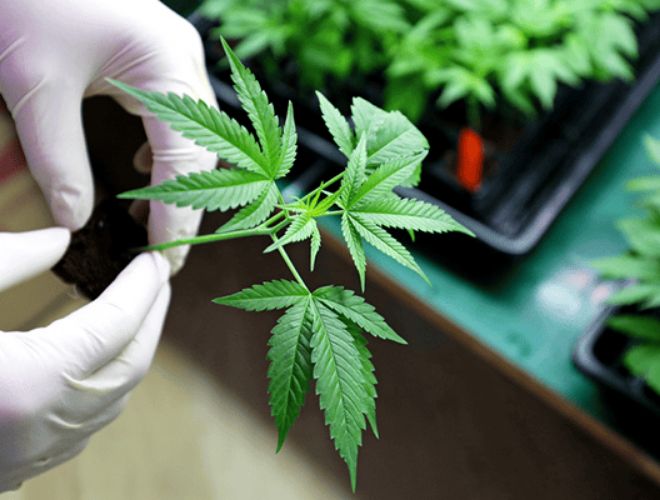
Does Marijuana Reduce Inflammation and How Does it Work?
Is THC good for inflammation? Absolutely!
According to findings, medical cannabis has potent anti-inflammatory abilities.
Researchers reveal that compounds like cannabidiol and tetrahydrocannabinol (or CBD and THC) can interact with the human body’s endocannabinoid system (or the ECS), leading to decreased inflammation levels.
In the sections below, you will find out more about medical marijuana for inflammation, and the different findings that point to its efficacy.
Now that you are aware of the answer to “Does marijuana reduce inflammation?”, you may be wondering about Indicas and Sativas. What is better for inflammation?
Traditionally, Indica strains are said to be more effective in reducing inflammation in the body – this is because these cannabis strains have soothing and calming effects. On the other hand, Sativa strains are known for provoking an energizing and focus-boosting effect.
Both Indica and Sativa strains can help patients cope with chronic conditions that cause inflammation. Hybrid strains containing various percentages of Indicas and Sativas can also be a good option for medical patients dealing with inflammation.
Does marijuana reduce inflammation? Yes, and medical cannabis can also help patients with conditions like:
- Autism
- Cancer
- Nausea
- Alzheimer’s disease
- HIV
- Ulcerative colitis
- Chronic and acute pain
- Amyotrophic lateral sclerosis or ALS
- Epilepsy
- PTSD
- Insomnia, and more.
An impressive study from 2023, reaffirmed these medical marijuana benefits. Not only does the study reveal that medical cannabis is adequate for these conditions, but that it is also a long-lasting treatment option.
Does marijuana reduce inflammation and what else can it do? Plenty!
Did you also know that medical marijuana can also improve your mental health and your mood?
This is excellent news for patients with inflammation who find that the symptoms take a toll on their mental health.
Often, inflammation can also lead to depressive symptoms. According to findings, patients with inflammation can experience fatigue, appetite loss, and social withdrawal.
The benefits of cannabis on mental health and mood are well-researched, and there is evidence that marijuana can help with depression and anxiety.
Are you ready to get the relief you deserve? Don’t hesitate and schedule your appointment today with our highly compassionate Qualified Medical Providers.
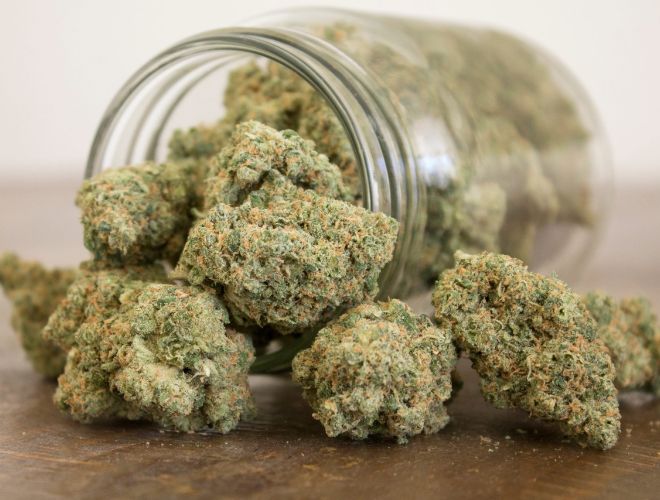
Indica Strains for Reducing Inflammation
As you know, Indica strains are sedative, relaxing, and they produce a full-body effect. On the flip side, Sativa strains are cerebral.
Patients with inflammation will greatly benefit from strains such as Granddaddy Purple Northern Lights, and the Blueberry strain – all of them provide users with powerful anti-inflammatory effects.
Does marijuana reduce inflammation? Yes. Does the type of strain matter? Not entirely. We recommend focusing more on the terpene and cannabinoid content of your medical marijuana, as this is a better indication of the strain’s effects on inflammation.
Remember, each cannabis strain has a distinctive profile, so make sure to talk to an expert for recommendations and advice.
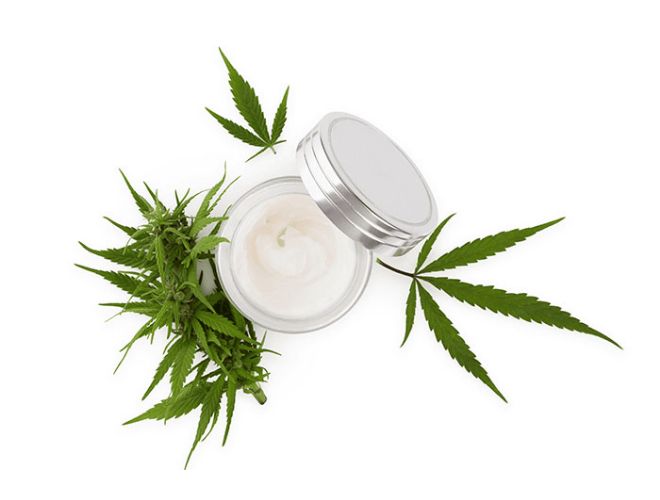
Medical Marijuana for Inflammation: Here’s What Research is Saying
Does marijuana reduce inflammation? Yes, and this is what the experts are saying!
First, it’s vital to understand the endocannabinoid system and how THC interacts with it. As a quick reminder, the ECS helps regulate different functions in the human body, such as inflammation and immune response.
Medical cannabis contains CBD and THC, and these cannabinoids bind to the ECS receptors. As a result of this binding, less inflammatory molecules are produced, and hence less inflammation.
Another thing to know is that medical cannabis can suppress cytokines, proteins that help signal inflammation in your body. Some cannabinoids can suppress the production of some cytokines, further reducing inflammatory response.
Here are three more effects of medical marijuana for inflammation:
- Medical marijuana helps manage chronic pain: Patients with arthritis experience chronic inflammation, and this can lead to severe pain.
Medical marijuana is a good treatment option for these patients as cannabis reduces inflammation as well as alleviates pain.
- Medical marijuana has neuroprotective effects: Patients with conditions like multiple sclerosis or MS can get relief from medical marijuana – the cannabinoids reduce inflammation in the nervous system!
- Medical marijuana for gastrointestinal inflammation: Patients with ulcerative colitis or Crohn’s can also get relief from symptoms, as medical cannabis can interact with the receptors in the gut, reducing inflammation.
All in all, as you see, THC is good for inflammation. Of course, you will want to be mindful of the THC dosage you use to treat your condition.

THC For Inflammation: How Much Is Enough?
Does marijuana reduce inflammation and how much THC should you take? The answer to this depends on various factors. Keep the following in mind when determining the best dosage for you:
- The type of condition you have: Patients dealing with different inflammatory conditions will require different THC levels. Always consult with a doctor for the best advice and recommendations.
- The individual differences: Everyone responds to THC differently. For instance, factors such as weight, age, metabolism, and tolerance levels can impact how a patient responds to THC.
- The formulation of your product: Nowadays, you can find different products on the market, such as oils, dry herbs, and edibles. Make sure to educate yourself about the way you consume THC and the CBD/THC ratios in your product of choice.
Also, always start with the lowest dose and use medical cannabis slowly. Check-in with how you feel before attempting to use more.
Do you need professional help? Make sure to book your appointment now with a Qualified Medical Provider!
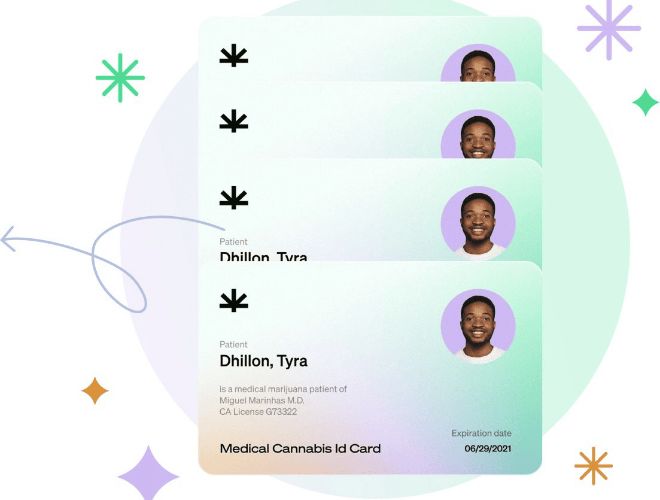
Obtaining a Medical Cannabis Card: An Overview
Does medical marijuana reduce inflammation? Researchers say it does! However, you need to obtain a medical cannabis card in Utah to enjoy the anti-inflammatory benefits of marijuana.
The good news is that getting a medical marijuana card in Utah is not as complicated as it sounds! The first step is to determine your eligibility. In Utah, you need to have a qualifying medical condition such as chronic pain, multiple sclerosis, epilepsy, or PTSD.
Next, find a qualifying medical provider. Your QMP will evaluate the medical condition and determine whether you qualify or not. If you are looking for the best in Utah, we are here to help!
Act now and schedule your first appointment today with our highly compassionate physicians to get started!
Once you have had a consultation with your Qualified Medical Provider (QMP) and paid the fee, the next step is to complete the online EVS application.
You are only charged once you have been approved by your QMP, and shortly after that you will get your medical cannabis card!
From there, you can visit any pharmacy in Utah to purchase medication, and your recommendation is good for a whole year.
Once your current recommendation expires, you can sign up for a Telehealth renewal appointment which means the doctor will call you as opposed to coming back into the office.
If you want to reap the benefits of THC for inflammation and you are wondering why a medical cannabis card is important, take a look at the following:
- It gives you legal access to the highest-quality cannabis in Utah
- You can access the best dispensaries with the safest products
- You will receive the best treatment possible
Get a medical cannabis card in Utah and get the best treatment available.
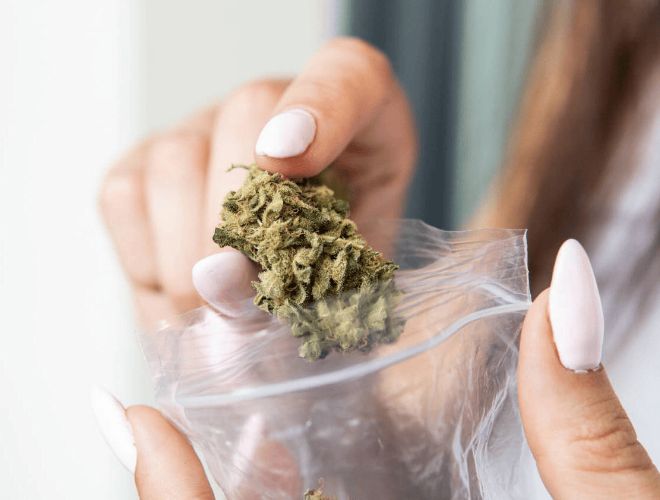
FAQ
Does marijuana reduce inflammation?
Yes, medical marijuana can help patients with inflammation. As mentioned in this article, cannabis contains cannabinoids like CBD and THC, and these can affect your endocannabinoid system.
The endocannabinoid system assists in regulating different functions in your body, such as inflammation!
How can you get medical marijuana for inflammation?
Before being able to use THC for inflammation in Utah, you will need to ensure that you qualify for a medical cannabis card. This is where a qualified medical provider can help you. Thankfully it is a quick and easy process to get approved.”
How much THC for inflammation is enough?
Experts say that the THC percentage in your cannabis is not as important as much as the cannabinoid and terpene content.
Always talk to a medical provider for expert advice and dosage recommendations. If this is your first time using THC for inflammation, you will want to take the lowest dose possible and start slowly.
This way, you can avoid any potential side effects of THC overconsumption such as increased anxiety.
Is THC good for inflammation in seniors?
Yes, THC for inflammation is an excellent option for seniors dealing with qualifying conditions such as arthritis. Senior patients can enjoy the effects of medical marijuana for inflammation, as well as other conditions like PTSD and more.

Give Us a Call Today
Does marijuana reduce inflammation? Yes, and it can do so much more for your health!
Take action, book an appointment with our team of compassionate Qualified Medical Providers and learn how you can get started!
